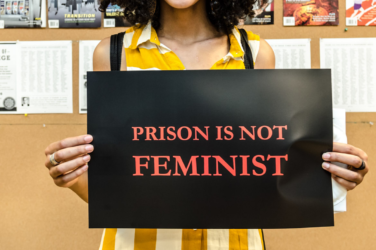New York City’s “Forgotten Borough” may be an island just five miles south of Manhattan but it has a deeply suburban character. Staten Island is politically conservative and mostly Irish- and Italian-American. Ten percent of all NYPD officers live in what is by far NYC’s least populous borough, even though only 58 percent live in the city.
Staten Island also happens to be the NYC borough most devastated by America’s drug overdose crisis. In 2016, Staten Island suffered 32.5 fatal overdoses per 100,000 residents. By way of comparison, Queens had 12.2 fatal overdoses per 100,000 residents that year. (For the nation as a whole, the figure stood at 19.8 in 2016, rising to 21.7 in 2017.)
The attendant misery is being exacerbated by the drug-warrior stances of the district attorney who took office in 2016: Michael E. McMahon.
Like many other chief law enforcement officers in the Northeast and Rust Belt, Richmond County (Staten Island) District Attorney McMahon has seemingly scrambled to get the crisis under control. Now three years into his tenure, McMahon, who is a Democrat, has fostered a public image somewhere in the middle of Kindly Former Congressman and Uncompromising Enforcer.
In 2017, he told a reporter about how he mourned the overdose death of his neighbor’s son; he had watched the 22-year-old grow up. And on launching a new misdemeanor diversion program that year, Heroin Overdose Prevention & Education (HOPE)—one that inspired a similar, questionable program in Brooklyn—McMahon promised a paradigm-shift that would allow Staten Island to no longer be “Heroin Island, but rather HOPE Island.”
On the other hand, McMahon has embraced treating overdoses like homicide cases, doing so in over 240 cases against people accused of dealing drugs or doctors by mid-2017.
He has also obtained more prison and jail sentences pursuant to felony drug arrests than his tough-on-crime Republican predecessor, Dan Donovan. In 2015, the last year of Donovan’s tenure, 5.6 percent of Staten Islanders arrested on drug felony charges were sent to prison (42 individuals). Those figures increased on McMahon’s watch in 2016, and had by 2017 reached 12.9 percent (72 individuals).
McMahon has touted his “tough love” approach as the reason for the 2017 decrease in fatal overdoses in Staten Island. (While Staten Island’s rate did decrease to 27.3 fatal overdoses per 100,000 people, this can largely be accounted for by the increase in availability of naloxone.) He is meanwhile a staunch opponent of safer consumption spaces (SCS), despite the clear evidence that they save lives. He also appeared to blame a recent increase in drug-related deaths in Vancouver, British Columbia on the existence of SCS in the city.
Blocking Treatment Court, Not Making Records Public
An investigation into the numbers of people McMahon’s office allows into Staten Island Treatment Court also highlights the gulf between the rhetoric of a career politician and any genuine humanitarianism.
The Staten Island Treatment Court (SITC) permits people arrested for drug and other offenses to undergo a rigorous treatment program. If successful, pending criminal charges, including felonies, are dropped. When DA Donovan was still at the helm, 54 people and 41 people entered SITC in 2014 and 2015 respectively—of whom 35 people in 2014 and 25 in 2015 had been arrested on felony drug charges.
A representative told Filter that there was no publicly available 2017 report because the agency had “messed up.”
In 2016, when McMahon was transitioning into office, the overall felony SITC admissions number decreased to 33 people, including 22 arrested for a drug felony. By 2018, according to the Court Calendar from the New York State Unified Court System, only 11 people on felony drug charges were allowed into the treatment court—a crushing 69 percent decrease from 2014.
Repeated calls to the New York City Criminal Court’s Drug Treatment Initiative revealed that this information has mysteriously been kept from public view. A representative of the agency finally told Filter that there was no publicly available 2017 report on SITC admissions—unlike the reports that exist from 2003 to 2016— adding that the reason was that the agency had “messed up.”
Aiden Cotter, a public defender who works in Staten Island, told Filter that after McMahon took office, the office’s policy was that felony drug cases had to be resolved with felony pleas, and almost always jail. This was less often the case under Donovan, whom Cotter characterized as fairer.
“The majority of individuals I work with are addicts making small-time sales to fund their own habits. McMahon’s strategy of imprisoning these individuals is short-sighted,” Cotter said. “The sensible solution is to treat an individual’s addiction, teach them life skills, and empower them to earn their way out of a criminal record. If you throw a person in prison without treating their addiction, in a few years that same addicted person will be back on the streets, but now unemployable due to their felony record.”
An Outlier in New York
This fits an unfortunate but now familiar pattern: Staten Island DA McMahon represents a draconian outlier compared with the prosecutorial practices in the rest of the five boroughs.
While both Brooklyn DA Eric Gonzalez and Manhattan DA Cy Vance have eased up on marijuana prosecutions, DA McMahon has refused to change his policies alongside mainstream American opinion.
Last year, after every other borough’s DA tossed scores of old warrants for petty offenses, McMahon called the practice “unfair to those citizens who responsibly appear in court.”
Not content with surpassing his predecessor in Staten Island, McMahon consistently obtains more jail and prison sentences for people arrested on felony drug charges than even retiring Queens District Attorney Richard A. Brown—an 86-year-old man who infamously opposed repealing New York’s brutal Rockefeller drug laws.
His motivations are unclear. As a US Representative from 2009 to 2011, McMahon did not seem particularly interested in criminal justice issues.
McMahon may be an outlier in New York City, but he closely resembles the retrograde, anti-science practices of suburban and rural district attorneys elsewhere in his region. For example, Bucks County, Pennsylvania DA Matt Weintraub recently claimed, “Nobody has come to me and said, ‘You’re sending too many people to state prison in Bucks County.’” The county’s incarceration rate has continued to skyrocket since Weintraub took office in 2016.
Just as drug-induced homicide prosecutions are much more popular in suburban and rural parts of Pennsylvania than in its cities, McMahon of Staten Island pursues the charge even though the rest of New York City’s DAs do not (except for overprescribing doctors).
Despite being a politician who has already enjoyed the career highlight of Congress, McMahon steers an outdated tough-on-crime ship. His motivations are unclear. As a US Representative from 2009 to 2011, McMahon did not seem particularly interested in criminal justice issues. His Congressional record shows a politician much more interested in international affairs, health and taxes than crime and law enforcement.
DA McMahon doesn’t lack examples of much better responses to drug issues by prosecutors in his region. In Burlington, Vermont, after fatal overdoses jumped to 17 per 100,000 people, Chittenden County State’s Attorney Sarah George commissioned a study on SCS in March 2017. By that October, she was convinced a site was what her county needed. When the Burlington City Council voted 9-3 on a resolution to support SCS, George championed the decision, while swiping at the three naysayers, who, she said, “think a discussion on the topic isn’t worth their time.”
Like the dissenting members of that city council, McMahon appears unwilling to engage in a good-faith dialogue, as evidenced by his non-response after experts replied to his Twitter rants against SCS.
Abraham Gutman, a Philadelphia Inquirer columnist and drug policy reform advocate, recently described how he wants to “politicize the overdose crisis.” He advised that people should ask their elected officials, ”Whose side are you on—harm reduction, medicine, and science, or death?”
For the Staten Island DA, the answer seems all too clear. The public should hold him accountable.
Image via SILive.com





Show Comments